Related Research Articles
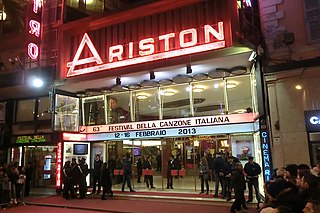
The Sanremo Music Festival, officially the Italian Song Festival, is the most popular Italian song contest and awards ceremony, held annually in the city of Sanremo, Liguria, organized and broadcast by Italian public broadcaster RAI. It is the longest-running annual TV music competition in the world on a national level and it is also the basis and inspiration for the annual Eurovision Song Contest.
The Viareggio Prize is an Italian literary prize, first awarded in 1930. Named after the Tuscan city of Viareggio, it was conceived by three friends, Alberto Colantuoni, Carlo Salsa and Leonida Repaci, to rival the Milanese Bagutta Prize.
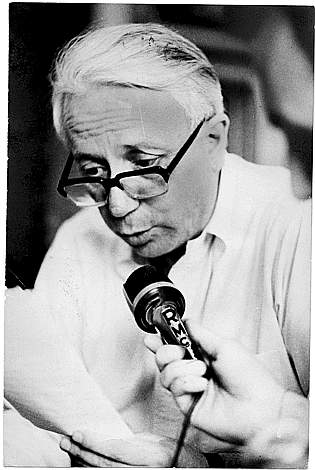
Enzo Biagi was an Italian journalist, writer and former partisan.
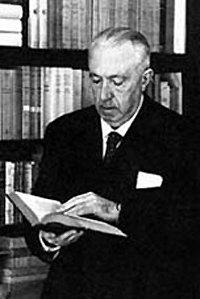
Carlo Emilio Gadda was an Italian writer and poet. He belongs to the tradition of the language innovators, writers who played with the somewhat stiff standard pre-war Italian language, and added elements of dialects, technical jargon and wordplay.

The People of Freedom was a centre-right political party in Italy. The PdL launched by Silvio Berlusconi as an electoral list, including Forza Italia and National Alliance, on 27 February for the 2008 Italian general election. The list was later transformed into a party during a party congress on 27–29 March 2009. The party's leading members included Angelino Alfano, Renato Schifani, Renato Brunetta, Roberto Formigoni, Maurizio Sacconi, Maurizio Gasparri, Mariastella Gelmini, Antonio Martino, Giancarlo Galan, Maurizio Lupi, Gaetano Quagliariello, Daniela Santanchè, Sandro Bondi, and Raffaele Fitto.
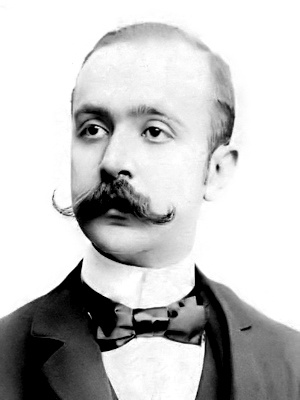
Federico De Roberto was an Italian writer, who became well known for his historical novel I Viceré (1894), translated as The Viceroys.

Giovanni Raboni was an Italian poet, translator and literary critic.
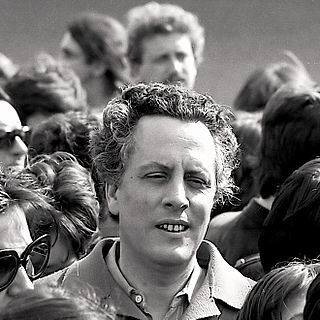
Antonio Porta was an Italian author and poet and one of the founders of the Italian literary movement Gruppo 63.
Daniele Del Giudice was an Italian author and lecturer. He lived in Venice, where he taught theatrical literature at the University Iuav of Venice.
The New Pole for Italy, better known as the Third Pole and less frequently as Pole of the Nation, was a centrist coalition of parties in Italy active from late 2010 to sometime in 2012. By January 2013, after Mario Monti had announced his intention to step in into politics, Future Italy and other groups formed Civic Choice with direct support from Monti. Subsequently, Civic Choice, UdC, and FLI joined forces in the With Monti for Italy coalition. The NPI was founded on 15 December 2010 both as an alternative to the centre-right coalition between The People of Freedom and Lega Nord led by Silvio Berlusconi, and to the centre-left coalition between the Democratic Party and Italy of Values led by Pier Luigi Bersani.

Alberto Cavallari was an Italian journalist and writer.

Edoardo Albinati is an Italian novelist.
Roberto Vignoli is a photographer who lives and works in Rome, known in both documentary and artistic circles. His photographs are inspired by cultural anthropology, architecture and environment. He is also a published writer and poet.

Antonio Scurati is an Italian writer and academic. A professor of comparative literature and creative writing at the IULM University of Milan, mass media scholar, and editorialist for the Corriere della Sera, Scurati has won the main Italian literary prizes. In 2019, he was awarded the prestigious Strega Prize for his novel M: Son of the Century (2018), which is part of a planned tetralogy dedicated to Benito Mussolini and Italian fascism. It was at the top of the charts for two consecutive years, was translated into over forty languages, and is set for a television series produced by Sky Original in 2024.
Alfredo Lucio Esposito, also known under the pseudonym of Alfredo Fiorani, was an Italian poet, writer, essayist and man of letters.

Giampaolo Pansa was an Italian journalist-commentator and novelist. Most of his writings were rooted in recent or contemporary history, notably with regard to the Italian Resistance and the Benito Mussolini years.

Paolo Di Stefano is an Italian novelist and journalist.
Pacifico Fiori was an Italian writer, journalist and playwright, renowned particularly as a novelist.
Rosanna Bettarini was an Italian philologist, best known for her critical editions on the works of Giorgio Vasari, Dante da Maiano, Jacopone da Todi, Eugenio Montale, and Petrarch. She taught at the University of Florence, was a member of the Accademia della Crusca and the Accademia dei Lincei, and was president of the Viareggio Prize.
References
- ↑ Formaggio, Diana; Marraro, Francesco (1987). "Calligarich, Gianfranco". Il "chi è" del giornalismo italiano: repertorio ragionato ad uso degli uffici stampa. Al. Ver. editrice. p. 106t.
- ↑ VV.AA. (1994). "Calligarich, Gianfranco". Il repertorio del giornalismo italiano. Olgiata Editrice. p. 100.
- 1 2 3 4 5 Di Stefano, Paolo (15 August 2010). "I romanzi di oggi? Da dimenticare". Corriere della Sera . p. 42.
- 1 2 3 "Calligarich, Gianfranco". Treccani (in Italian). Retrieved 23 September 2024.
- 1 2 "Calligarich, il mio primo romanzo tra affondi e risalite". ANSA (in Italian). 29 June 2021. Retrieved 23 September 2024.
- ↑ Gasperetti, Marco (27 August 2017). "Premio Viareggio, non solo vincitori: dopo 88 anni arriva l'archivio". Corriere della Sera (in Italian). Retrieved 23 September 2024.